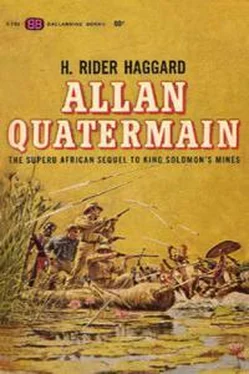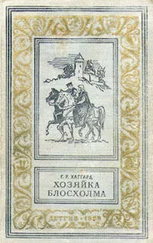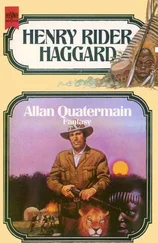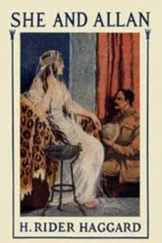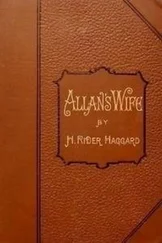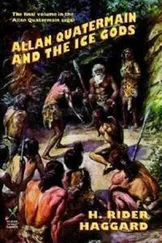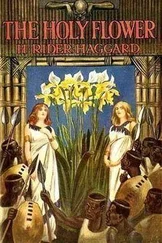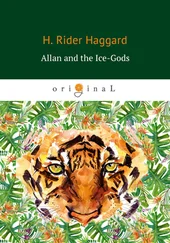Allan Quatermain
H. Rider Haggard
I inscribe this book of adventure to my son ARTHUR JOHN RIDER HAGGARD in the hope that in days to come he, and many other boys whom I shall never know, may, in the acts and thoughts of Allan Quatermain and his companions, as herein recorded, find something to help him and them to reach to what, with Sir Henry Curtis, I hold to be the highest rank whereto we can attain—the state and dignity of English gentlemen.
December 23
'I have just buried my boy, my poor handsome boy of whom I was so proud, and my heart is broken. It is very hard having only one son to lose him thus, but God's will be done. Who am I that I should complain? The great wheel of Fate rolls on like a Juggernaut, and crushes us all in turn, some soon, some late—it does not matter when, in the end, it crushes us all. We do not prostrate ourselves before it like the poor Indians; we fly hither and thither—we cry for mercy; but it is of no use, the black Fate thunders on and in its season reduces us to powder.
'Poor Harry to go so soon! just when his life was opening to him. He was doing so well at the hospital, he had passed his last examination with honours, and I was proud of them, much prouder than he was, I think. And then he must needs go to that smallpox hospital. He wrote to me that he was not afraid of smallpox and wanted to gain the experience; and now the disease has killed him, and I, old and grey and withered, am left to mourn over him, without a chick or child to comfort me. I might have saved him, too—I have money enough for both of us, and much more than enough—King Solomon's Mines provided me with that; but I said, "No, let the boy earn his living, let him labour that he may enjoy rest." But the rest has come to him before the labour. Oh, my boy, my boy!
'I am like the man in the Bible who laid up much goods and builded barns—goods for my boy and barns for him to store them in; and now his soul has been required of him, and I am left desolate. I would that it had been my soul and not my boy's!
'We buried him this afternoon under the shadow of the grey and ancient tower of the church of this village where my house is. It was a dreary December afternoon, and the sky was heavy with snow, but not much was falling. The coffin was put down by the grave, and a few big flakes lit upon it. They looked very white upon the black cloth! There was a little hitch about getting the coffin down into the grave—the necessary ropes had been forgotten: so we drew back from it, and waited in silence watching the big flakes fall gently one by one like heavenly benedictions, and melt in tears on Harry's pall. But that was not all. A robin redbreast came as bold as could be and lit upon the coffin and began to sing. And then I am afraid that I broke down, and so did Sir Henry Curtis, strong man though he is; and as for Captain Good, I saw him turn away too; even in my own distress I could not help noticing it.'
The above, signed 'Allan Quatermain', is an extract from my diary written two years and more ago. I copy it down here because it seems to me that it is the fittest beginning to the history that I am about to write, if it please God to spare me to finish it. If not, well it does not matter. That extract was penned seven thousand miles or so from the spot where I now lie painfully and slowly writing this, with a pretty girl standing by my side fanning the flies from my august countenance. Harry is there and I am here, and yet somehow I cannot help feeling that I am not far off Harry.
When I was in England I used to live in a very fine house—at least I call it a fine house, speaking comparatively, and judging from the standard of the houses I have been accustomed to all my life in Africa—not five hundred yards from the old church where Harry is asleep, and thither I went after the funeral and ate some food; for it is no good starving even if one has just buried all one's earthly hopes. But I could not eat much, and soon I took to walking, or rather limping—being permanently lame from the bite of a lion—up and down, up and down the oak–panelled vestibule; for there is a vestibule in my house in England. On all the four walls of this vestibule were placed pairs of horns—about a hundred pairs altogether, all of which I had shot myself. They are beautiful specimens, as I never keep any horns which are not in every way perfect, unless it may be now and again on account of the associations connected with them. In the centre of the room, however, over the wide fireplace, there was a clear space left on which I had fixed up all my rifles. Some of them I have had for forty years, old muzzle–loaders that nobody would look at nowadays. One was an elephant gun with strips of rimpi, or green hide, lashed round the stock and locks, such as used to be owned by the Dutchmen—a 'roer' they call it. That gun, the Boer I bought it from many years ago told me, had been used by his father at the battle of the Blood River, just after Dingaan swept into Natal and slaughtered six hundred men, women, and children, so that the Boers named the place where they died 'Weenen', or the 'Place of Weeping'; and so it is called to this day, and always will be called. And many an elephant have I shot with that old gun. She always took a handful of black powder and a three–ounce ball, and kicked like the very deuce.
Well, up and down I walked, staring at the guns and the horns which the guns had brought low; and as I did so there rose up in me a great craving:—I would go away from this place where I lived idly and at ease, back again to the wild land where I had spent my life, where I met my dear wife and poor Harry was born, and so many things, good, bad, and indifferent, had happened to me. The thirst for the wilderness was on me; I could tolerate this place no more; I would go and die as I had lived, among the wild game and the savages. Yes, as I walked, I began to long to see the moonlight gleaming silvery white over the wide veldt and mysterious sea of bush, and watch the lines of game travelling down the ridges to the water. The ruling passion is strong in death, they say, and my heart was dead that night. But, independently of my trouble, no man who has for forty years lived the life I have, can with impunity go coop himself in this prim English country, with its trim hedgerows and cultivated fields, its stiff formal manners, and its well–dressed crowds. He begins to long—ah, how he longs!—for the keen breath of the desert air; he dreams of the sight of Zulu impis breaking on their foes like surf upon the rocks, and his heart rises up in rebellion against the strict limits of the civilized life.
Ah! this civilization, what does it all come to? For forty years and more I lived among savages, and studied them and their ways; and now for several years I have lived here in England, and have in my own stupid manner done my best to learn the ways of the children of light; and what have I found? A great gulf fixed? No, only a very little one, that a plain man's thought may spring across. I say that as the savage is, so is the white man, only the latter is more inventive, and possesses the faculty of combination; save and except also that the savage, as I have known him, is to a large extent free from the greed of money, which eats like a cancer into the heart of the white man. It is a depressing conclusion, but in all essentials the savage and the child of civilization are identical. I dare say that the highly civilized lady reading this will smile at an old fool of a hunter's simplicity when she thinks of her black bead–bedecked sister; and so will the superfine cultured idler scientifically eating a dinner at his club, the cost of which would keep a starving family for a week. And yet, my dear young lady, what are those pretty things round your own neck?—they have a strong family resemblance, especially when you wear that very low dress, to the savage woman's beads. Your habit of turning round and round to the sound of horns and tom–toms, your fondness for pigments and powders, the way in which you love to subjugate yourself to the rich warrior who has captured you in marriage, and the quickness with which your taste in feathered head–dresses varies—all these things suggest touches of kinship; and you remember that in the fundamental principles of your nature you are quite identical. As for you, sir, who also laugh, let some man come and strike you in the face whilst you are enjoying that marvellous–looking dish, and we shall soon see how much of the savage there is in you .
Читать дальше
